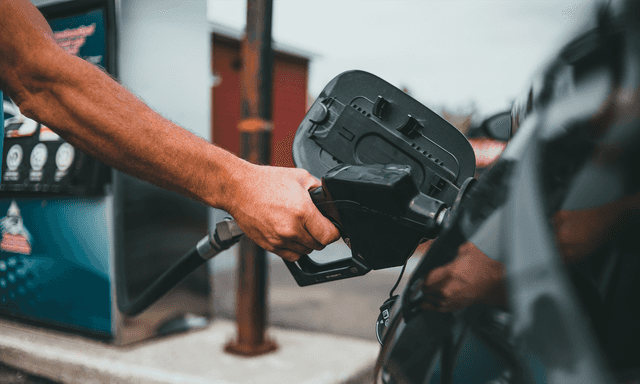- top tips
7 Tips To Increase Your Fuel Economy

Updated 15 Nov 2023
Joel Ilton

Saving money at the petrol station is easier than you think. You can boost the fuel efficiency of your car by as much as 30% by simply looking after your vehicle and paying attention to how you drive.
Here are some tips that could save you hundreds of dollars a year in fuel costs, and also do your bit for the environment by reducing your greenhouse gas emissions.
rive smoothly
Accelerating away from traffic lights quickly, or tailgating the car in front of you, will cause your vehicle to use more fuel.
Taking off smoothly from a stop and hanging back from the traffic in front of your car allows you to drive more smoothly and more efficiently.
Following too closely makes you slow down and speed up constantly, burning more fuel in the process.
Travelling further behind lets you evaluate the situation coming up and coast instead of hitting the brakes.
Using a higher gear also allows your engine to be more efficient, but letting the engine labour to avoid shifting down uses more fuel and can increase wear and tear on your engine.
Don’t speed
Driving your car at excessive speed causes your engine to be less efficient.
Driving at 110km/h and over can increase your fuel consumption by 15%, so saving that few minutes by driving faster will end up costing you more in the long run!
Sitting at 100 km/h or under allows your vehicle to be more efficient and also saves you from the risk of getting a speeding ticket.
Excess weight
Are you still lugging around those golf clubs in the boot from the 18 holes you played 3 months ago?
Is the back seat of your car full of half-empty water bottles? The extra weight of these items can decrease your fuel economy, as the heavier your car is, the more fuel it requires to propel it along.
Removing 20-40kg of weight from your car can improve your economy by as much as 5%, which doesn't sound like much, but can add up over time!
Check your tyres
Having under-inflated tyres not only causes them to wear prematurely but decreases your fuel economy as well.
Keeping your tyres inflated to the correct level is a simple and easy way to save money at the pump. Lower tyre pressures increase the rolling resistance of your tyres, which requires more fuel to overcome.
Always check the pressures when the tyres are cold (driven on for less than 5 minutes), as warmer tyres will give you incorrect readings. Your car’s wheel alignment also plays a major role in fuel economy.
If your alignment is out, your vehicle will be ‘fighting’ the grip of the tyres, which will increase the amount of fuel required to propel you along. If your car is pulling to one side, or you notice one side of the tyre wearing more than the other, it's time to get the alignment checked.
Use the correct fuel for your vehicle
Most modern vehicles can run on E10 unleaded, which may be good when you initially fill up, as it is usually cheaper than the regular fuels on sale, but ethanol has a lower volatility than normal fuel, so more is required to provide the same performance.
This increases fuel consumption, so you will be visiting the service station more often.
Although it does cost a few more dollars to fill your car with premium fuel, you’ll notice the difference after a few fills. Your fuel economy will increase, and you may even notice a slight performance boost.
Most European and performance vehicles require premium fuel, so running regular or E10 in these vehicles can cause performance issues.
You may even hear the engine ‘pinging’ which is caused by the lower octane fuel pre-igniting and can cause premature engine damage if it continues.
The required fuel for your vehicle is usually listed on the inside of the fuel flap.
Remove wind restrictions
Does your vehicle have roof racks fitted that you never use? Remove and store them in the garage when not in use, as leaving them fitted increases the wind resistance and drag of your vehicle.
This requires more fuel to ‘push’ your vehicle through the air, which increases your fuel usage.
If you’re using your roof racks, spread the items out so they don’t sit as high, or use a streamlined cargo box to keep resistance down.
Car maintenance
Last but not least, keeping your car well-maintained will not only save you on fuel costs but will prolong the life of your engine..
Carrying out regular servicing to the manufacturer's logbook, and replacing air and fuel filters and spark plugs at regular intervals, will keep your vehicle running longer and at its best.
Using the correct grade of oil also plays a major part in fuel economy. Thicker oil can increase fuel consumption, as the moving parts of the engine have a harder time moving through it.
This is also the case with older oil, which is why changing it at regular intervals is so important.
Keeping your vehicle well-maintained will result in better fuel economy, as well as picking up on small issues before they become more serious and more costly!
If you’ve read this far, you care about your car. A lot. So next time you need a service, repair or inspection, visit AutoGuru
We let you search, compare and book from over 1,600 qualified mechanics who eat car troubles for breakfast.

Written By
Joel Ilton
Finding a passion for cars from a young age, Joel carried out work experience as a mechanic whilst at school before starting an apprenticeship after finishing year 12.
Joel is now the Workshop Manager at Robina Volkswagen.